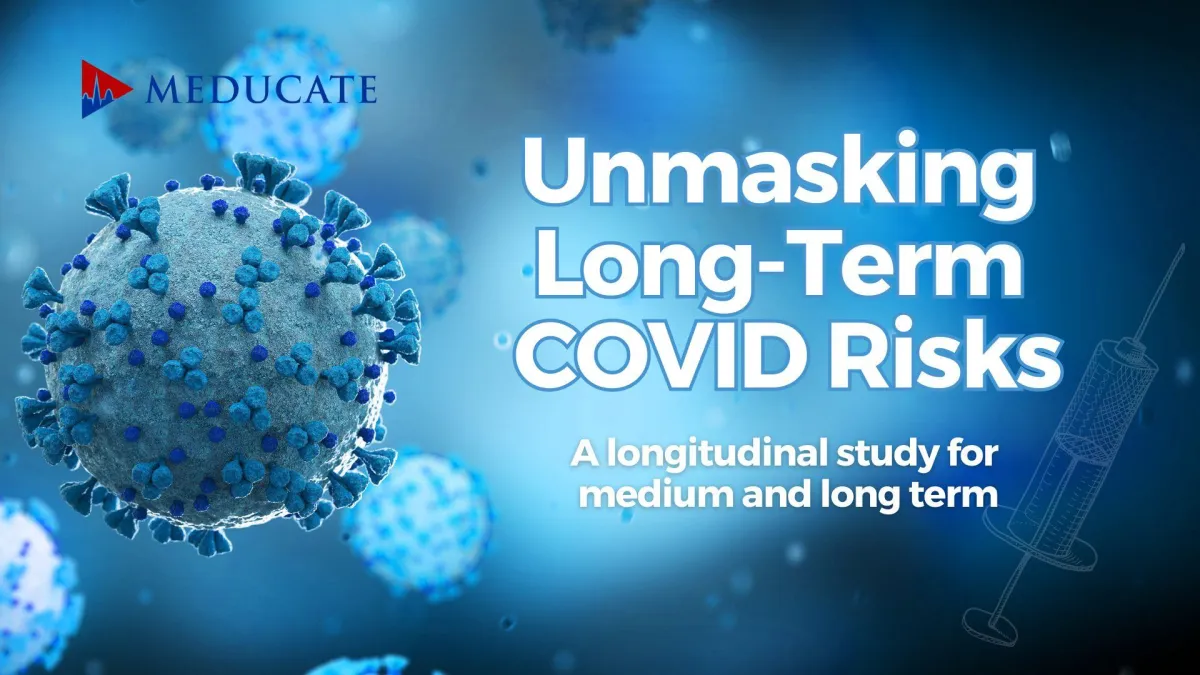Blogs

Are COVID-19 Vaccines Linked to Higher Long-Term Mortality Risks?
Unmasking Long-Term COVID Risks
Today, we’re tackling a compelling and controversial topic: the long-term risks associated with severe COVID-19 and the role vaccines may have played in shaping these outcomes. We’ll be exploring a new study from Brazil that raises critical questions about the lingering effects of severe acute respiratory syndrome—or SARS—on mortality, as well as the implications for vaccines.
This is a big one, so let’s get right into it.
Setting the Stage
The COVID-19 pandemic has been a transformative global event—not just in how we live our lives but in how we approach healthcare. In the early waves of the pandemic, the focus was understandably on acute care: keeping people out of the ICU and reducing the immediate death toll. But as the dust settles, we’re starting to see the bigger picture—and it’s not all reassuring.
The Brazilian study we’ll discuss today tracks patients who developed severe SARS during their COVID infection, focusing on their mortality risks over the medium and long term. The findings are both sobering and thought-provoking.
The Key Findings
Here’s what the data tells us: for patients who survived severe SARS, the risk of death remained significantly elevated, even up to a year after their recovery.
Initially, the risk reduction seemed promising, particularly for vaccinated individuals, who showed a 4 to 8% lower mortality rate in the medium term. However, as we move beyond the one-year mark, a different trend emerged: vaccinated patients showed a 69 to 94% higher risk of death compared to their unvaccinated counterparts.
The study’s authors attribute this trend to potential long-term effects on the immune system, hypothesising that the vaccines may have inadvertently increased vulnerability to other health conditions over time.
Revisiting the Vaccine Gamble
We need to address the big question: were the COVID-19 vaccines a gamble that didn’t pay off?
The rapid development of vaccines during an unprecedented crisis came with an inherent risk—there was little time for long-term safety data to be collected. And while these vaccines undeniably reduced severe illness and saved millions of lives in the short term, the findings of this study suggest that their long-term effects warrant serious scrutiny.
The authors propose that vaccines may have an indirect effect on the immune system, potentially increasing susceptibility to other health complications over time. If confirmed, this would represent a significant challenge to the prevailing narrative that vaccination is the unqualified success story of the pandemic.
Now, let’s be fair. Observational studies like this one have limitations. Factors like socioeconomic disparities, pre-existing conditions, and access to follow-up care could also influence these outcomes. The authors themselves call for more research to confirm their findings and to better understand the underlying mechanisms.
But here’s the takeaway: the medical community must confront these findings with transparency and integrity. If there are risks associated with vaccines, they need to be addressed—not ignored—in the pursuit of safer and more effective health interventions.
Broader Implications for Healthcare
This isn’t just about vaccines; it’s about how we care for patients in the long term. The study highlights that severe SARS survivors face persistent risks—whether they’re vaccinated or not. Organ dysfunction, systemic inflammation, and mental health challenges are just some of the long-term complications survivors must navigate.
Healthcare systems need to step up. Discharge is not the end of the story—it’s the beginning of a recovery journey that requires multidisciplinary support, from cardiologists to mental health professionals.
Moving Forward
So, where does this leave us? First, we need more research—lots of it. Studies like this are invaluable, but they’re just one piece of the puzzle. We also need better systems for monitoring long-term vaccine safety and more investment in post-COVID care programs.
Second, we need to prioritise transparency. Trust in public health depends on open, honest conversations about risks, benefits, and uncertainties. If mistakes were made, acknowledging them is the first step to regaining public trust.
Finally, we need to remember that the fight against COVID-19 isn’t over. Vaccines may not be the perfect solution, but they are one tool in a larger arsenal. The goal now is to refine and improve these tools based on what we’ve learned.
I hope this discussion has given you some valuable insights and plenty to think about. If you found this article helpful, share it with your colleagues, rate us, and subscribe to stay updated on the latest in healthcare.

